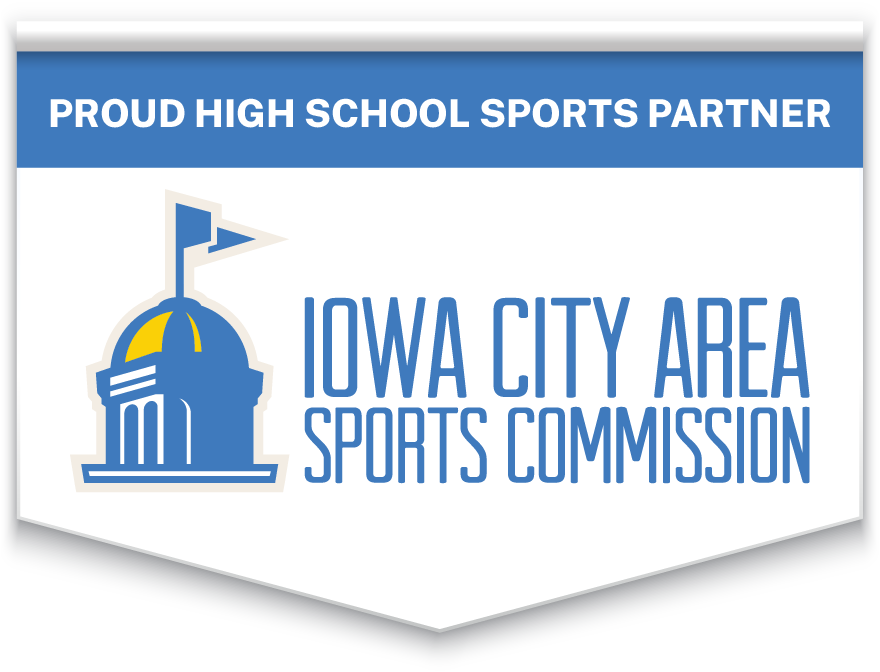116 3rd St SE
Cedar Rapids, Iowa 52401
Home / Sports / Iowa High School Sports
Today's preps manage time, life balance, with off season club team obligations
N/A
Apr. 24, 2015 1:00 pm
Editor's note: Nancy Justis, a former competitive swimmer, is a partner with Justis Creative Communications.
By Nancy Justis, correspondent
Competitive sports have become an integral part of our children's lives. Hand in hand, the choice of playing for club, AAU, traveling teams and other such platforms has increased.
There are good and bad reasons for kids to participate in these time- and labor-intensive programs.
The best reason is because they love it and are having fun. For the talented youth athlete, the time put in assists in their further development.
Bad reasons include parents enthusiasm (dare I say pressure) for what they believe will help their kids get a step ahead of their friends, helping to ensure future college scholarships and perhaps a chance to play professionally.
Are parents blindly accepting the notion that 'coach knows best?' Are they doing any kind of investigation into a coach's qualifications? What background does this person have in order to instruct your child in not only the fundamentals of the sport, but in life lessons and the other benefits of sport participation? Or are they just interested in making money off you and your child?
No matter the reason behind the child's participation, parents should research the clubs available because he or she could end up spending more time with those coaches than with you or their school coach.
In 'A Parents Guide to Choosing an AAU, ASA, Club, Traveling Team or Pro-Coach Program' article written for the Iowa Girls' Coaches Association (IGCA), the authors notes, 'Any middle school or high school coach is typically a teacher who has studied human growth and development as well as learned the methodology of how children learn and process information.
'To become a coach in Iowa, every coach must pass tests on: Concussion Protocol, Prevention and Treatment; Mandatory Reporting (understanding signs of child abuse and reporting those); Blood Borne Pathogens (how to keep students and coaches safe from blood or bodily fluids); Ethics for Iowa Educators; Bullying Prevention; Right to Know (handling hazardous materials in the workplace); Seclusion and Restraint; plus, undergone an extensive background check.'
These teachers/coaches are evaluated on a yearly basis and usually have taken continuing education courses. High school coaches probably have attended clinics on a regular basis.
There isn't a guideline or policy for many non-institutional (education based) coaches in terms of their qualifications. Really, any 'Joe' off the street could form a traveling team and convince you to pony up for the ride.
The article lists numerous items parents should think about when choosing a 'club' team for their child.
* Have the coaches gone through a background check?
* Did they go through a college teaching program? This is important when considering who is coaching 8-, 9-, 10- or 11-year-olds ... Their development should be a priority.
* What was the coach's playing experience in the sport? With the amount paid in fees, parents should expect the club coach to have a high level of experience in working with youth, in combination with experience in playing the sport.
* Do they possess basic first aid training and do they have the best interest of the child in mind? Concussion training is on the forefront ... Who will be caring for your child after the injury when the game resumes?
* What are the club's expectations (win at all costs, positive experience)? Berating athletes at any level after a loss should not be part of the learning experience. No amount of money paid is worth your child receiving verbal abuse. Talk to other parents who have been in the program.
* What kind of character does the coach display? Is profanity common? Are officials frequently criticized? Is anger common?
* Are there multiple adults in charge? If one person manages, coaches, schedules and collects fees, be cautious.
* Be wary if a 'club' criticizes high school programs and coaches. The goal for both should be to provide the child with a positive experience.
* Statements made by coaches that the athlete will play in front of hundreds of Division I recruiters and promises of scholarships are way out-of-line.
* Does the 'club' support the academic success of the athlete? Many programs require children to miss class. Don't let grades suffer.
* Know the rules. Don't let a 'club' endanger your child's high school eligibility. Rules can be researched from the Iowa Department of Education or the NCAA.
In a column requested by the Huffington Post (published online March 12, 2015), Rick Wolff of 'Ask Coach Wolff' goes so far to say 'it sure would be nice if the President, a noted sports fan AND a sports parent himself, would appoint a blue-ribbon panel of experts' to help set up federal guidelines regarding youth sports instruction.
He believes travel teams should be licensed and certified.
'That means real regulation of everything from who the coaches are, if they are trained in CPR, background checks and, most importantly, has anyone with real credentials trained the travel team coaches to be a coach? Just being a former player does not qualify for you to train or work with kids.
'Let's also have transparency about the tryout fees, the costs of being on the team, the coaches' salaries, and let's discuss guarantees on my kid's playing time. And for the elite travel teams, let's provide real stats on how many kids on those teams are actually offered college scholarships, from what colleges, how much, and so on.'
l Let us know what you think by contacting Justis at njustis@cfu.net
The Gazette





 Daily Newsletters
Daily Newsletters